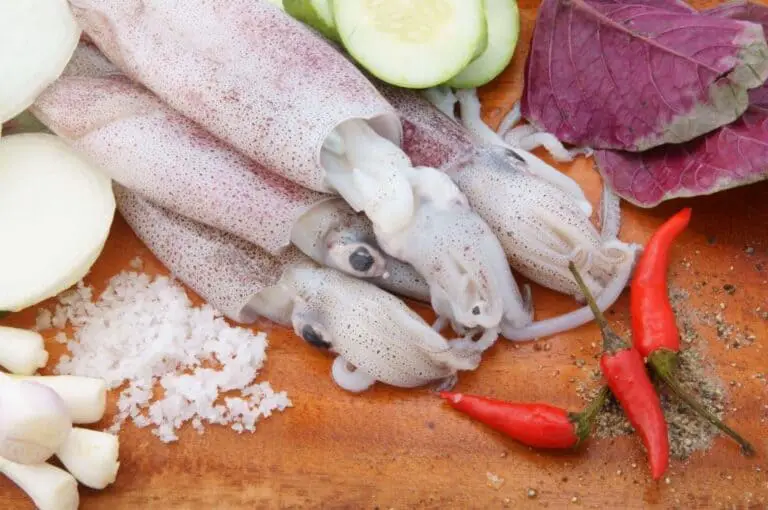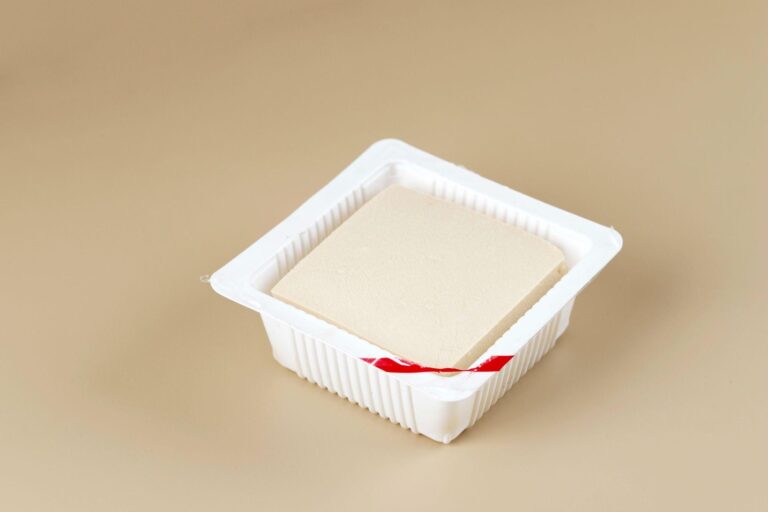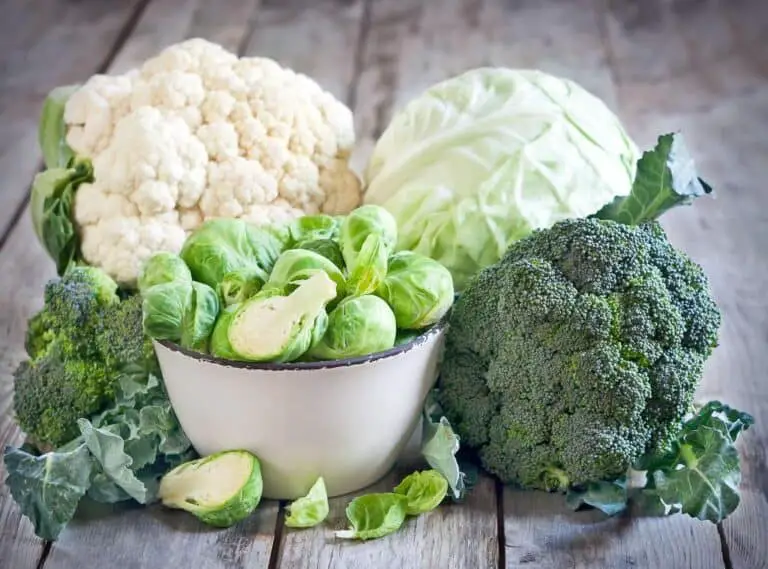Can You Leave Canned Food in the Can After Opening? Is It Safe?
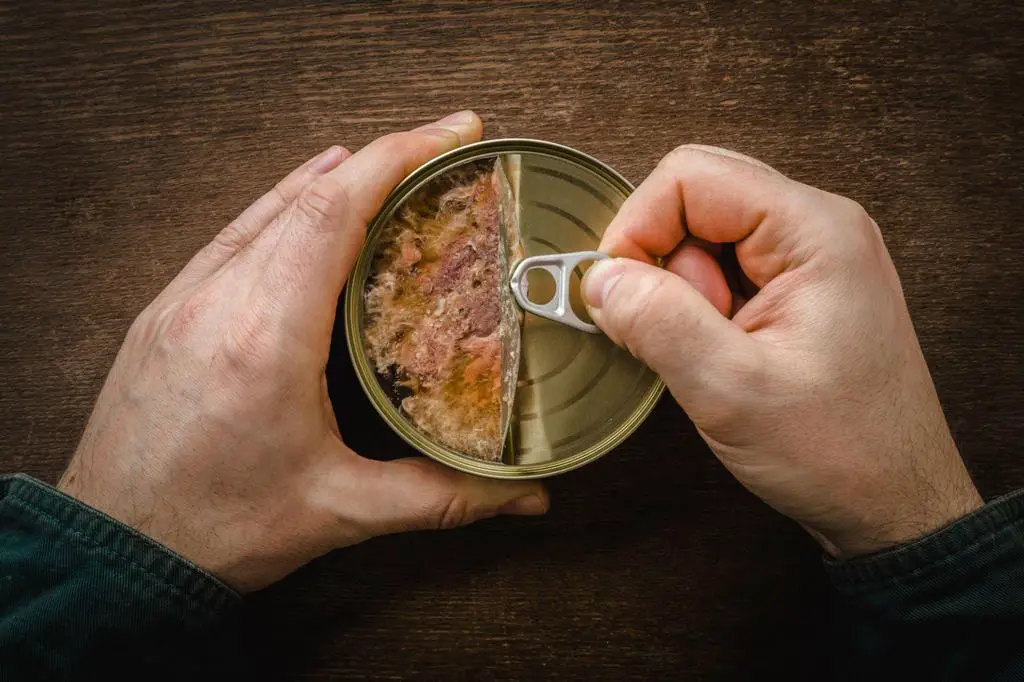
Canned food has been a staple on many pantry shelves for decades, providing convenience and preserving the freshness of various foods. However, a common debate arises when it comes to leaving canned food in the can after opening: is it safe?
Unused portions of canned food may be refrigerated in the can, but to preserve optimum quality and flavor, it is recommended to place the unused portion in a glass or plastic storage container.
This question often triggers conflicting opinions and myths. Understanding the risks and benefits associated with storing canned food in its original container is key to making informed decisions about food safety.
In this article, we will delve into the factors that contribute to the safety of leaving canned food in the can after opening, debunk common misconceptions, and explore best practices for storage.
Canned Food Storage Basics
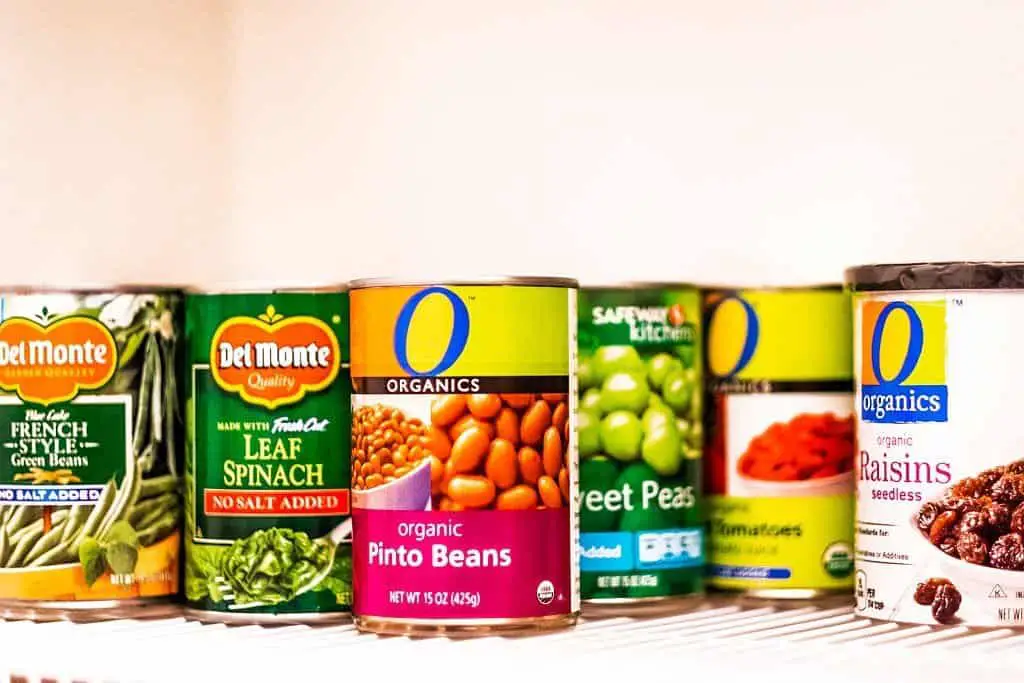
Before we dive into the specifics of leaving food in the can, let’s understand the fundamentals of canned food storage. Whether it’s a can of tomatoes or a hearty stew, proper storage is key to maintaining freshness.
- Cool and Dry: Store opened cans in a cool, dry place. Avoid exposure to direct sunlight or extreme temperatures, as this can impact the quality of the food.
- Refrigeration: If you’ve used only a portion of the contents, transferring the remainder to a sealed, airtight container and refrigerating it is often a smart move. This helps prevent bacterial growth and keeps the flavors intact.
- Avoid Corrosion: Check for any signs of can damage or corrosion before consuming the contents. Damaged cans can compromise the safety of the food inside.
Can You Leave Food in the Can After Opening?
Now, let’s tackle the burning question: Is it safe to leave canned food in the can after opening? The short answer is that it depends.
Acidic vs. Non-Acidic Foods
- Acidic Foods: Tomatoes, citrus fruits, and other acidic foods can react with the metal in the can, affecting both taste and safety. It’s advisable to transfer these items to a non-reactive container after opening.
- Non-Acidic Foods: Non-acidic foods like beans and meats are generally safer to leave in the can, provided the can is in good condition and stored correctly.
The Risk of Bacterial Contamination
Leaving food in the can after opening it can expose it to the risk of bacterial contamination. Harmful bacteria thrive in moist environments, and a sealed can provides an ideal breeding ground.
Even a small amount of bacteria or chemical contamination in canned food can have serious health consequences when consumed. While it may be tempting to simply place an open can in the refrigerator for later use, it’s important to transfer any remaining contents into a clean, airtight container instead.
By taking this simple precaution, you can ensure that your meals are not only delicious but also safe for consumption. Refrigeration helps mitigate this risk, but it’s essential to adhere to recommended storage times.
Impact of Can Material on Food Safety
You know that the can material may have an impact on food safety. So you better consider the potential risks associated with certain types of cans. For example, some cans are lined with a plastic coating that contains BPA, a chemical known for its potential health hazards.
When acidic foods come into contact with this lining, there is a risk of BPA leaching into the food, which has raised concerns about its impact on human health. Additionally, the presence of rust or dents in metal cans can compromise the integrity of the packaging. It may potentially lead to contamination and spoilage of the enclosed food products or canned liquid.
The type of metal used in cans can also influence food safety. Most modern cans are made of steel or aluminum, which are safe materials for storing food. However, some older or imported canned goods may have been made with materials that are worse for your health.
With these considerations in mind, it’s crucial for you as consumers to be aware of the type and condition of canned goods they purchase and consume to minimize potential impacts on their health and well-being.
How Long Can You Leave Food in the Can?
The duration you can leave food in the can after opening varies depending on the type of food and storage conditions. Here’s a quick guide:
| Type of Canned Food | Recommended Storage Time |
| Vegetables | 1–2 days in the refrigerator |
| Soups and Stews | 3–4 days in the refrigerator |
| Fruits | 1–2 days in the refrigerator |
| Meats | 1–2 days in the refrigerator |
| Beans and Legumes | 3–4 days in the refrigerator |
Practical Tips for Canned Food Enthusiasts
For those who love the convenience of canned goods, here are some practical tips to ensure your culinary experience remains safe and delicious:
- Invest in Can Lids: If you frequently use canned foods, consider investing in reusable can lids. These handy accessories allow you to seal opened cans, maintaining freshness and reducing the risk of contamination.
- Label and Date: Keep track of your opened cans by labeling them with the date of opening. This simple habit helps you monitor freshness and ensures you consume the contents within the recommended timeframe.
- Transfer unconsumed content: Transfer any unused portion into a clean, airtight container before refrigerating. This not only helps prevent potential contamination but also preserves the flavor and texture of the food. Additionally, using appropriate storage containers can help minimize exposure to air and bacteria, ensuring that the food remains safe for consumption
- Use Transparent Containers: When transferring food from the can to a storage container, opt for transparent ones like plastic containers or plastic tupperware. This makes it easy to identify the contents without compromising the seal, reducing exposure to air.
| Related: Can You Eat Canned Food Past Its Expiration Date? |

Conclusion: Ensuring Food Safety After Opening Cans
In conclusion, you need to prioritize food safety after opening cans to prevent potential health risks. Once a can is opened, transferring the contents to a food-safe container and storing them in the refrigerator is essential for maintaining freshness and preventing bacterial growth. Additionally, using the opened canned food within a reasonable time frame, typically within 2-3 days, reduces the risk of spoilage and contamination.
Moreover, following proper handling and storage guidelines for canned foods is key to ensuring their safety. This includes checking for any signs of damage or rust on the can before opening it, as well as being mindful of expiration dates.
By taking these precautionary measures and prioritizing food safety practices, you can continue to enjoy the convenience and nutritional benefits of canned foods while minimizing potential health hazards.
FAQs on Shelf Life of Opened Canned Goods
Can you leave canned food in the can after opening?
It’s not advisable. Once opened, transfer canned food to a suitable container to avoid bacterial contamination and preserve quality.
How long is it safe to leave canned food open in the can?
Ideally, consume within 1-2 hours after opening. Prolonged exposure can lead to bacterial growth and compromise safety.
Does the type of can material affect post-opening safety?
Yes, different materials can influence safety. Consider transferring acidic foods from metal cans to prevent reactions that may affect taste and safety.
What are the risks of leaving opened canned food in the can?
Risks include bacterial contamination, changes in taste and texture, and potential spoilage. Transfer to airtight containers for optimal safety.
Are there visual indicators of spoilage in canned food after opening?
Yes, look for signs like mold, off odors, or changes in color and texture. These indicate potential spoilage, and the food should be discarded.
Does leaving food in opened cans affect the shelf life of the product?
Yes, leaving food in opened cans can shorten the shelf life, leading to changes in taste, texture, and potential spoilage.



